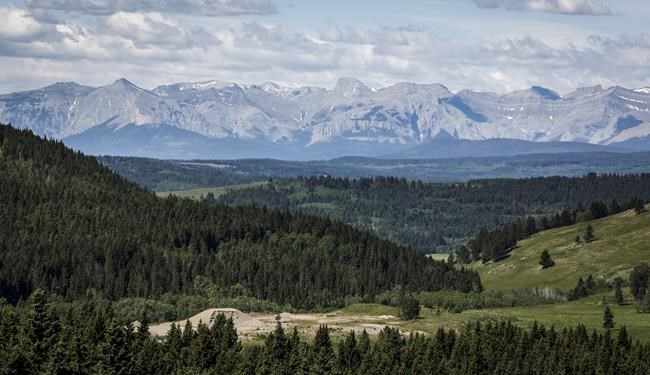An Australian coal company is withdrawing its plan for a mine in the Crowsnest Pass region of the eastern slopes of Alberta's Rocky Mountains.
"The coal mine, in our minds, is a no-go," said Peter Doyle, CEO of Montem Resources, which had proposed to redevelop the Tent Mountain site to produce steelmaking coal.
In a letter filed Tuesday, Montem Resources asked the Alberta Energy Regulator to end the environmental impact assessment for the proposal.
"Montem Resources Alberta Operations Ltd. will not be carrying out the resumption of mining activities at the project," it says.
The decision brings to an end a short-lived resurgence of coal mining in Alberta, which began in 2020 when the United Conservative government revoked a decades-old policy that blocked open-pit coal mines in the eastern slopes of the Rockies. Within a year, thousands of hectares were staked for coal exploration up and down the province's western boundary.
But that much-loved landscape is also the water source for millions of Albertans. Opening those summits and foothills to development provoked a severe and widespread backlash that ran from urban environmentalists to small-town mayors to country music stars.
The government commissioned a committee to canvass Albertans on the issue. After its report, then-energy minister Sonya Savage reinstated the protections of the original policy and blocked coal development in the area.
Four projects were exempted from Savage's ministerial order. Tent Mountain was one of them.
Another, the Grassy Mountain proposal, was denied provincial and federal permits after an environmental review. A third, the Vista thermal coal project, faces a federal review and has been told that such projects are inconsistent with Ottawa's plans to fight climate change.
The fourth, Valory Resources' Mine 14 proposal for an underground mine for steelmaking coal near Hinton, Alta., does not face a federal review and is expected to apply for provincial permits.
Doyle said Montem is to focus its efforts on plans to turn the Tent Mountain site, which hasn't produced coal since 1983, into a renewable energy facility. The company proposes to use wind power to pump water to a storage pond partway up the mountain and generate electricity as it is released back downhill.
He said Montem's recent agreement with Alberta utility company TransAlta, which has agreed to pay up to $25 million for half of the project, "crystallized" the company's focus on the pump hydro project.
"We're full steam ahead on our new partnership with TransAlta," said Doyle. "(It's) a great win for everybody."
Doyle said previous plans to use the generated electricity to split water molecules and create hydrogen have been set aside.
"There's no viable water source," he said.
He said Montem will make a final investment decision on the project in 2025.
Katie Morrison of the Canadian Parks and Wilderness Society, which vigorously opposed the expansion of coal mining in the Rockies, welcomed the Tent Mountain announcement.
"It's a positive sign that we're seeing these projects either die at the regulator or the proponents … reinventing them as something new," she said.
"We still have to look carefully at what the impacts of that hydro station would be in that environment, but it's certainly better than a giant coal mine."
This report by The Canadian Press was first published April 26, 2023.
Bob Weber, The Canadian Press



